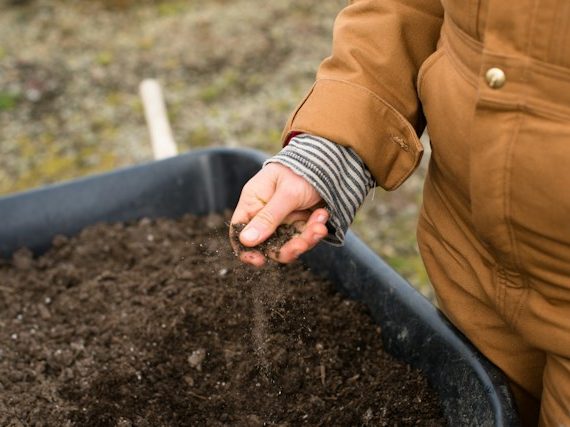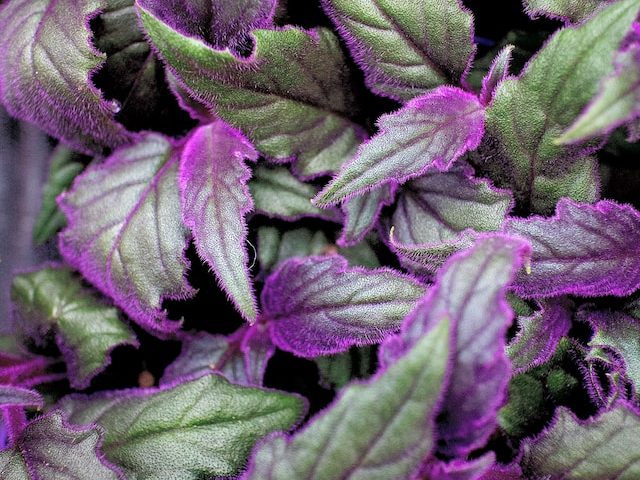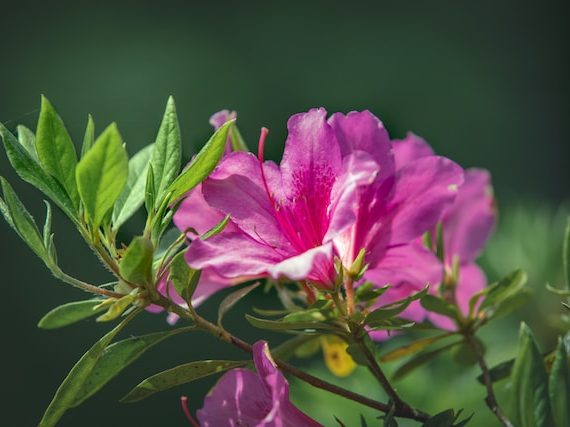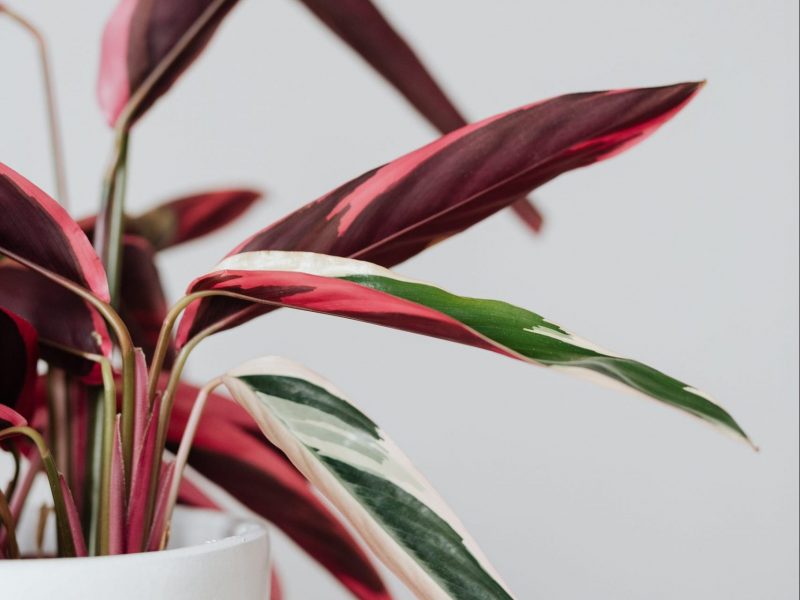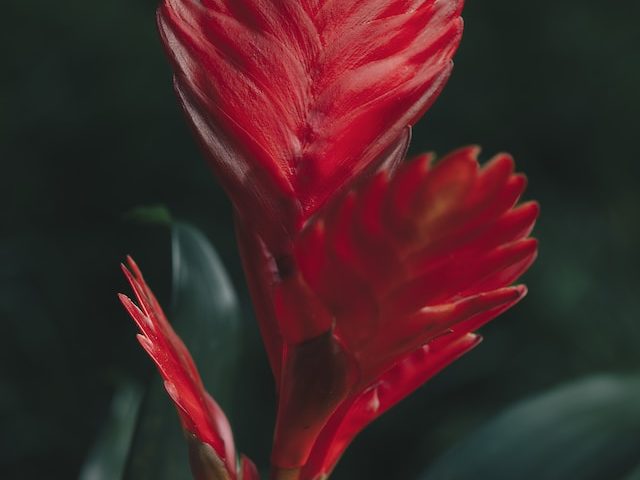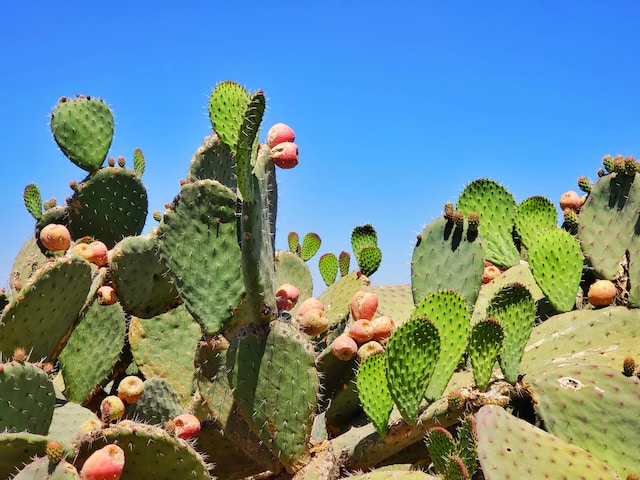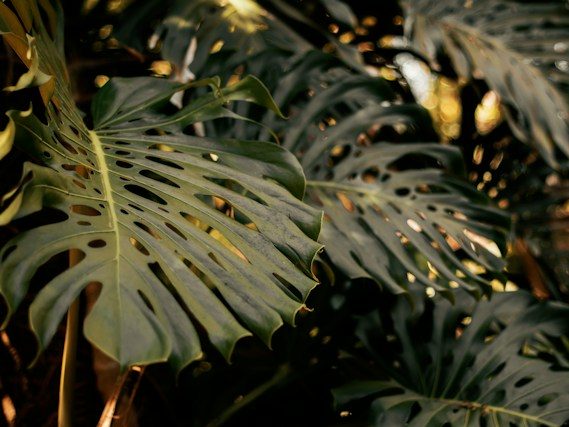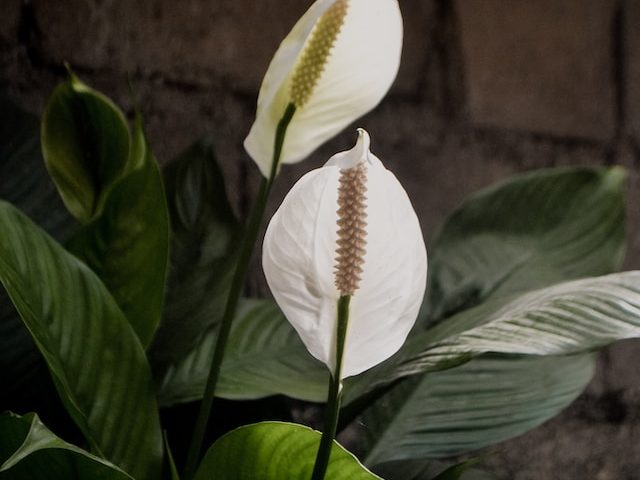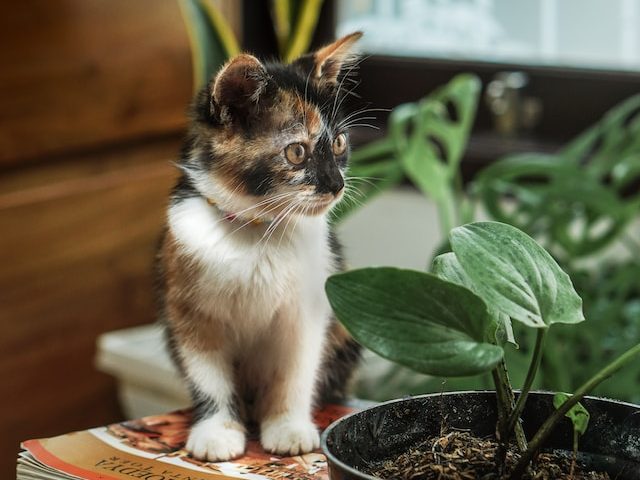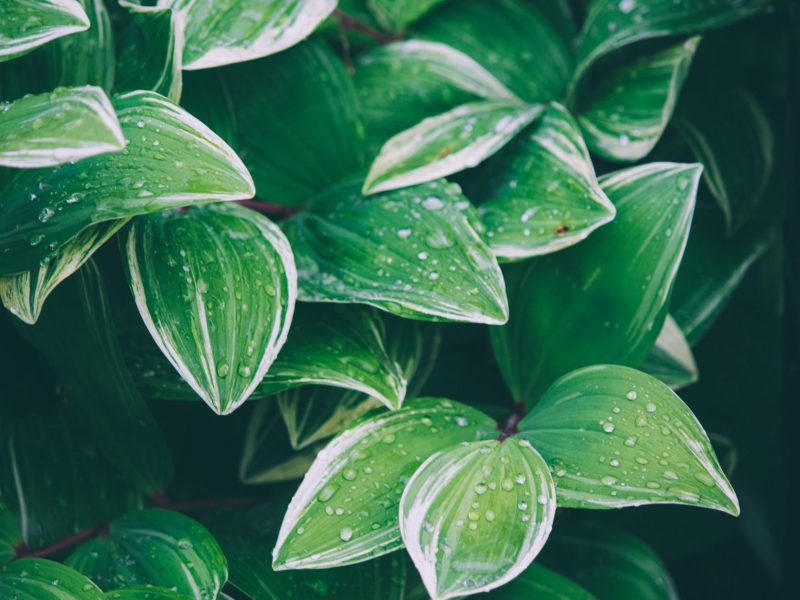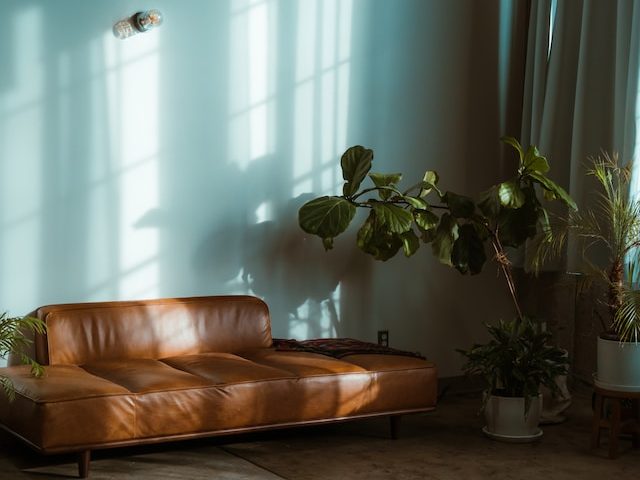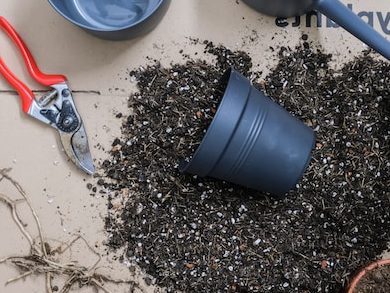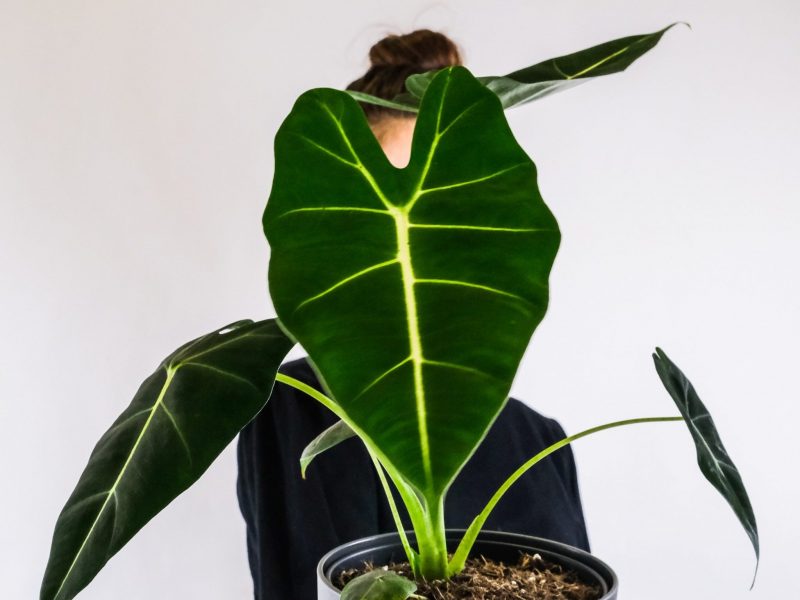
There are quite a few reasons why your African Mask Plant might be dying. But don’t worry, we have you covered. Below are the most common causes along with what symptoms they result in and how to fix the issue so you can quickly determine why your plant is dying and make the right changes. Good luck!
Watering issues
If your African Mask Plant is dying and developing yellow leaves then watering issues may be the cause. Too much or too little water can cause the plant to slowly die if the problem goes on for several weeks. Underwatering usually causes drier leaves whilst overwatering causes softer yellowing.
To establish if watering issues is what is causing your African Mask Plant to die, take the plant out of the pot and take a look at the soil. If the potting mix is very dry and powdery or waterlogged and clumpy then watering is causing the problem.
If the soil is waterlogged replace it straight away and trim away the rotten roots. This will allow your plant to start to recover. Hold back from watering as much as before and you should see healthy new growth eventually appearing. If the plant has been underwatered slowly reintroduce watering instead of drowning your plant. This avoids any shock caused by a sudden change of environment.
In the future, make sure to monitor the moisture levels in the soil to avoid any watering issues. You want to hold back watering as much during winter as the cold darker months mean your plant will go dormant and not produce any new growth. This is when root rot and waterlogged soil becomes a higher risk factor.
Low temperature
Another reason that your African Mask Plant might be dying is cold temperatures. Native to the tropics, African Mask Plants thrive in warm humid environments. If there is a slight cold draft coming through the door or window then this can impact your plant’s health.
Draft-proof any doors or windows that are close to your plant or move them into a slightly warmer room in your home. It may take a little time for your plant to adjust so don’t expect it to instantly recover.
Too much sunlight
If there are yellow scorched patches on the leaves then it may be caused by too much direct light. African Mask Plants thrive in bright but indirect light. They can cope with a little direct sunlight but not in summer. The sun is too intense and will scorch the leaves.
Unfortunately, this is irreversible but you can prevent further scorching by moving your plant to a different spot in your home. Luckily this shouldn’t have damaged too much of the overall plant as the root system will still be healthy so your plant shouldn’t die on you.
Lack of humidity
If your African Mask Plant has developed brown spots or edges on the leaves then dry air is usually the case. Like with temperatures, African Mask Plants thrive in conditions like the tropics. Although we could never reach a humidity level anything like the tropics (and even if we could, we definitely wouldn’t want to live in it), we can increase the humidity a little and your plant will love you for it.
Here are a few simple ways to increase the humidity for your African Mask Plant:
Mist the leaves regularly
Use a spray bottle to mist the leaves a few times a week. This also gets rid of dust on the leaves which is a bonus.
Make a pebble tray
Fill up a tray of pebbles and fill halfway with water. Place your plant on top and the water will evaporate around it, increasing the humidity level.
Shower your plant
Wash down the leaves, keeping the water pressure fairly low. Not only will this up the humidity but it may get rid of any pests that are secretly living on your plant.
Move to the bathroom/ kitchen
These rooms have naturally higher humidity levels because of steam from showering and cooking. Your African Mask Plant will love it if the light levels are right.
Buy a humidifier
This is the long term solution to humidity issues and the best thing you can invest in for your plants. We recommend this humidifier from Amazon – our plants love it!
Pest infestation
Although rarer than other factors, another reason why your African Mask Plant might be dying is a pest infestation. Pests suck on the plant’s leaves, exhausting it and causing it to turn yellow in most cases. A lot of pests are visible to the human eye so we can catch the problem by properly inspecting the leaves. Pests like to hang out on the undersides of the leaves as well as the stem joints.
If you spot pests lurking on your plant the first thing to do is isolate it from any of your other houseplants. Pests can jump across plants if they are close so you want to avoid the problem spreading to any of your other plants. Check over your other plants to check for pests and keep them far away from non-infested plants.
You then want to trim off any badly affected leaves or stems. This will initially curb the growth of the infestation by cutting the numbers. You then want to shower your plant down to try and get rid of as many pests from the plant before treating with insecticide.
A pest infestation isn’t always a death sentence for your plant but it can be. We have had to get rid of several plants because there was just no getting rid of them and we didn’t want them to spread to other plants.
Those are the most common reasons why your African Mask Plant is dying. For all of the issues, if you have caught the problem early then you have a great chance of getting your plant back to full health. Be patient as these things can take time.
If you want to learn more about caring for your plant check out our African Mask Plant care guide.
Complete Houseplant Care eBook
Our comprehensive (and rather good looking) eBook that will teach you everything you need to know to successfully care for, and maintain your houseplants!
Buy on


